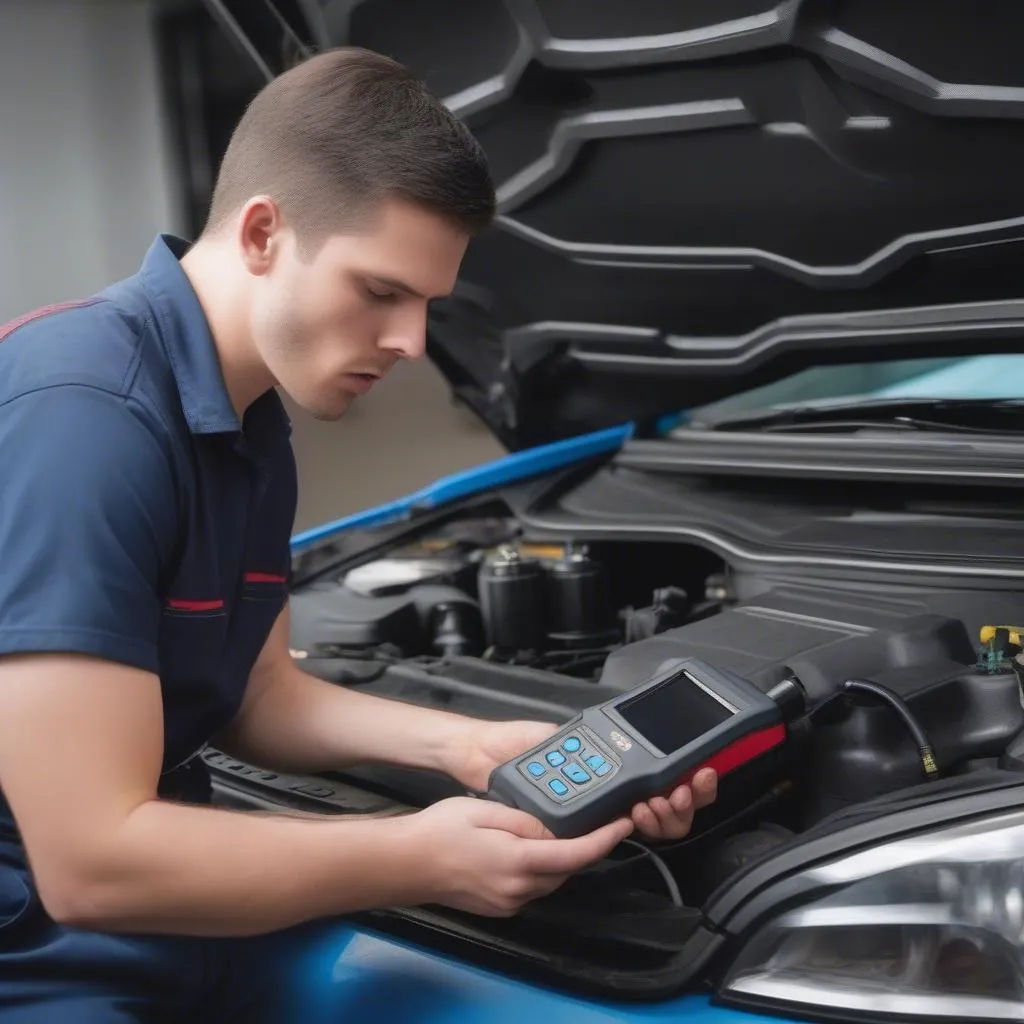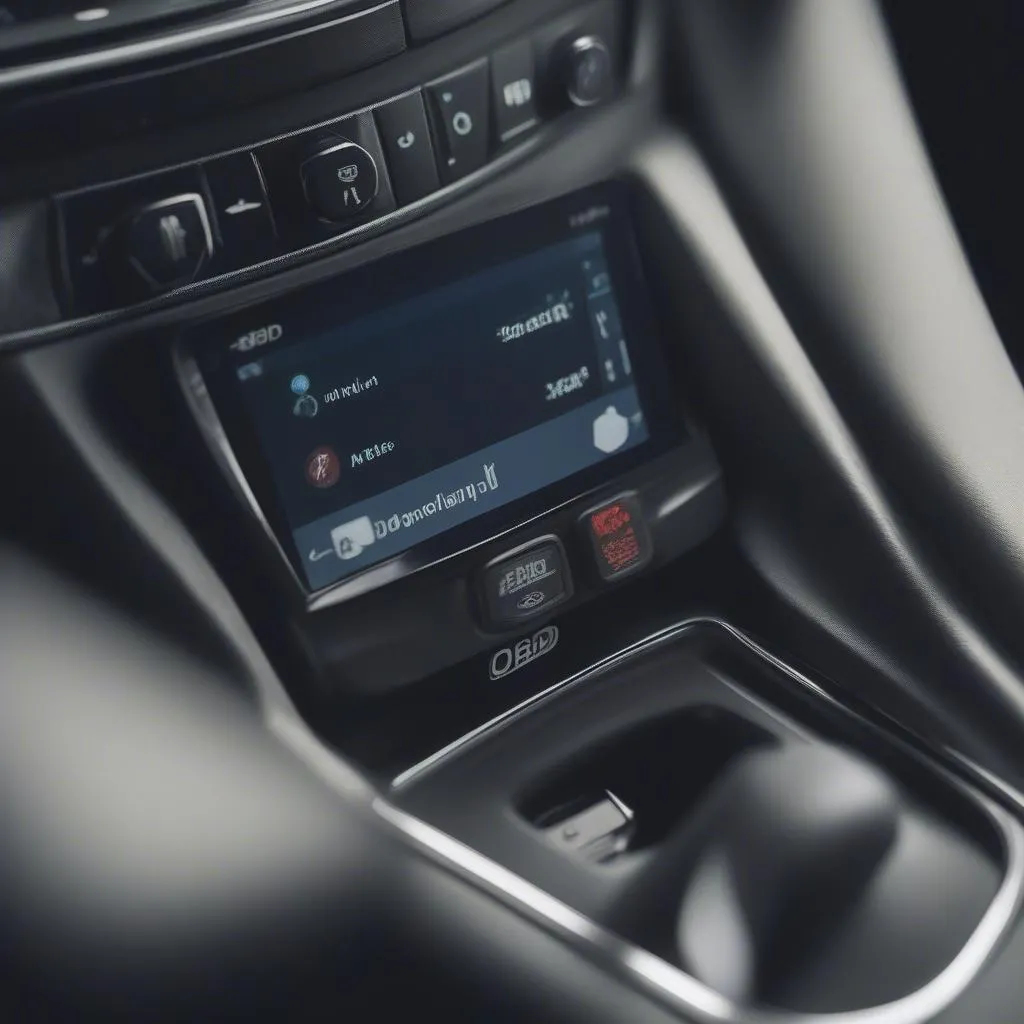Imagine this: you’re driving down the Pacific Coast Highway in your sleek 2018 Audi A4, the California sun warming your face. Suddenly, a dreaded engine light pops up on your dashboard, shattering the peace. Your heart sinks. What’s wrong? How serious is it? For many car owners, this scenario is all too familiar, often leading to anxiety and expensive trips to the mechanic. But what if you could understand your car’s language and potentially diagnose the problem yourself? This is where OBD scanners come into play, acting as your personal car whisperer. But with different types available, like OBD II and OBD 11 Pro, it’s easy to get confused. Fear not, car enthusiast, this article delves into the differences between these scanners, empowering you to make an informed choice for your vehicle.
Deciphering the Acronyms: OBD II and OBD 11 Pro
First things first, let’s break down the jargon:
- OBD: Stands for On-Board Diagnostics. Think of it as your car’s internal communication system that monitors various components and reports any malfunctions.
- OBD II: Introduced in 1996 for all US vehicles, this standardized system allows access to engine and emissions-related data.
- OBD 11 Pro: This term can be misleading. While it may appear to be a specific type of OBD scanner, it’s more of a marketing term used by some manufacturers to denote a higher-end or “professional” version of an OBD II scanner. These scanners might offer additional features or cater to specific car makes, but they still operate within the OBD II framework.
Essentially, there’s no such thing as a distinct “OBD 11 Pro” standard. Think of it as a deluxe burger on a fast-food menu – it’s still a burger, just with extra toppings.
 car-diagnostic-tool
car-diagnostic-tool
What Does This Mean for You?
Understanding this distinction is crucial when choosing the right scanner. If you’re looking for a basic tool to read and clear engine codes, a standard OBD II scanner will likely suffice. However, if you’re a seasoned mechanic or a car enthusiast who enjoys delving deeper into your vehicle’s systems, investing in a more advanced OBD II scanner marketed as “Pro” might be worthwhile.
Key Features to Consider
When navigating the world of OBD scanners, consider these factors:
Functionality:
- Basic Scanners: Read and clear engine codes, display basic vehicle information (VIN, mileage).
- Advanced Scanners: Access manufacturer-specific codes, perform live data streaming, conduct bi-directional tests (actuating components), program keys, and more.
Vehicle Compatibility:
- Ensure the scanner supports your car’s make, model, and year. Some scanners are universal, while others are designed for specific brands like Bosch for European cars.
- Check if you need additional adapters for older vehicles.
User Interface:
- Opt for a scanner with a clear, easy-to-navigate display.
- Consider features like color screens, touchscreen functionality, and multilingual support.
Connectivity:
- Wired Scanners: Connect directly to the OBD II port.
- Wireless Scanners: Communicate via Bluetooth, allowing freedom of movement.
Price:
- Prices vary depending on features and complexity.
- Determine your budget and desired functionality level.
FAQs about OBD Scanners
Here are some common questions car owners often ask:
Q: Where is the OBD II port located in my car?
A: Typically, it’s found under the dashboard on the driver’s side, but its location can vary. Refer to your owner’s manual for the exact location.
Q: Can an OBD scanner fix my car?
A: Not directly. OBD scanners are diagnostic tools that provide information about potential problems. They don’t fix the issues themselves.
Q: Do I need a professional mechanic, or can I use an OBD scanner myself?
A: Basic scanners are user-friendly, allowing DIY enthusiasts to read and clear codes. However, more complex issues might require a professional’s expertise.
 car-obd-port
car-obd-port
Expert Insights
“The advancement in OBD technology has revolutionized car repair,” says Dr. Emily Carter, an automotive engineer and author of “The Car Whisperer’s Guide.” “With the right scanner, car owners can gain valuable insights into their vehicle’s health, saving time and money in the long run.”
Finding the Right Scanner for Your Needs
Whether you’re a casual driver or a passionate gearhead, understanding the nuances of OBD scanners can empower you to take control of your car maintenance. Remember, the best scanner for you depends on your specific needs, budget, and level of technical expertise.
Explore More
Interested in learning more about specific OBD scanners? Check out our reviews:
Do you have a tricky car issue that needs professional help? Don’t hesitate to contact us via WhatsApp at +84767531508. Our expert mechanics are available 24/7 to assist you with all your diagnostic needs. We can help you decipher those cryptic codes and get your car back on the road in no time!